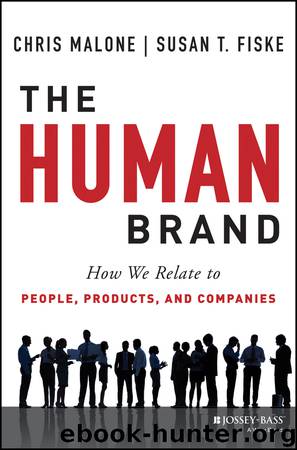The Human Brand by Chris Malone & Susan T. Fiske

Author:Chris Malone & Susan T. Fiske
Language: eng
Format: epub
Publisher: Wiley
Published: 2013-09-03T04:00:00+00:00
The Loyalty Disconnect
For some merchants and businesses, Groupon and its many imitators have been, without a doubt, a godsend in terms of short-term revenue. One early success touted by Groupon was a $25 ticket for a Chicago architectural boat tour that was sold for $12 in 2010. Groupon dealt 19,822 tickets in eight hours and split the $238,000 in revenue with the boat tour company. Without Groupon, that $119,000 cash infusion would have likely been lost to the tour operator in the form of empty seats. But how many of those $12 boat riders are apt to come back at full fare? And how did those hoards of casual Groupon day trippers (who were quite possibly bored by architecture) affect the experience of loyal boat tour customers who had paid full fare?
It’s perhaps unfair to single out Groupon for these kinds of problems, because the rise of the Internet has created similar problems in almost every industry. Online purchases of everything, including even college degrees, have made customers so price-focused and lacking in loyalty that merchants have responded with any number of price-dependent gimmicks to win them back. The most common, referenced briefly in Chapter Two, are the reward-based “loyalty” programs, which don’t really create relational loyalty at all, but merely drive repeat business, at ever-lower prices. With the help of e-commerce, rewards programs have moved far beyond what they were just a few years ago, when Subway would punch your ticket for a free hoagie after ten purchases. They have grown more sophisticated, more complex, and more costly.
Many industries have begun to head down the same road that the hotel industry took more than fifteen years ago. At first, e-commerce was greeted by the hotel industry as a potential cost-savings bonanza. Since then, as the number of hotel reservations made online has crept up to 70 percent, e-commerce has instead evolved into a grim necessity at best, and a ruinously complex headache at its worst.
Expedia, Orbitz, and Hotels.com, known collectively as OTAs (online travel agencies), have become the tails wagging the dog in the travel industry. When the industry was hit hard following the terror attacks of September 11, 2001, OTAs scooped up unsold rooms from struggling hotel owners and resold them to bargain-hunting travelers. By training us to think in terms of comparative price, location, and basic amenities, e-commerce has tended to obscure the importance of service, staff, and reputation-related differences.
In the following years, hoteliers found themselves heavily dependent on OTAs for reservations, even as they were forced to compete with them in the sale of their rooms. Although the hotel companies eventually developed their own sophisticated websites in an attempt to recapture online sales, the price transparency driven by the OTAs forced them to match OTA prices or risk losing otherwise loyal customers to them.
A digital arms race eventually emerged, in which hoteliers, OTAs, and other online travel resellers have used increasingly sophisticated revenue management systems and teams to constantly monitor and tweak hotel rates, trying to gain an edge and squeeze just a few extra dollars from customers.
Download
This site does not store any files on its server. We only index and link to content provided by other sites. Please contact the content providers to delete copyright contents if any and email us, we'll remove relevant links or contents immediately.
Influence: The Psychology of Persuasion by Robert B. Cialdini(4775)
The Miracle Morning by Hal Elrod(4711)
The Hacking of the American Mind by Robert H. Lustig(4375)
Pre-Suasion: A Revolutionary Way to Influence and Persuade by Robert Cialdini(4219)
Unlabel: Selling You Without Selling Out by Marc Ecko(3658)
Ogilvy on Advertising by David Ogilvy(3603)
Hidden Persuasion: 33 psychological influence techniques in advertising by Marc Andrews & Matthijs van Leeuwen & Rick van Baaren(3552)
Purple Cow by Seth Godin(3195)
Who Can You Trust? by Rachel Botsman(3129)
Kick Ass in College: Highest Rated "How to Study in College" Book | 77 Ninja Study Skills Tips and Career Strategies | Motivational for College Students: A Guerrilla Guide to College Success by Fox Gunnar(3116)
The Marketing Plan Handbook: Develop Big-Picture Marketing Plans for Pennies on the Dollar by Robert W. Bly(3046)
This Is Marketing by Seth Godin(3021)
I Live in the Future & Here's How It Works by Nick Bilton(2990)
The Power of Broke by Daymond John(2975)
The Tipping Point by Malcolm Gladwell(2911)
Building a StoryBrand by Donald Miller(2896)
The 46 Rules of Genius: An Innovator's Guide to Creativity (Voices That Matter) by Marty Neumeier(2840)
Draw to Win: A Crash Course on How to Lead, Sell, and Innovate With Your Visual Mind by Dan Roam(2781)
Market Wizards by Jack D. Schwager(2696)
